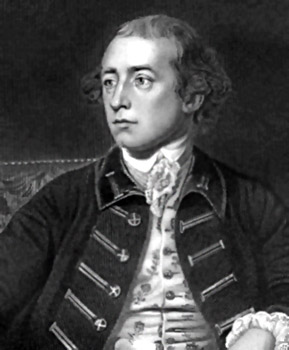 In the modern age the West has entered into India mainly through the British and so the story of India`s contact with the West is woven round the Indo British relationship that began developing after the fall of the Mughal Empire. For the first fifty years of the British Raj the attitude was one of indifference towards the Indians. This mood changed as the nineteenth century advanced and under the stress of the utilitarian and liberal philosophy born of the rising material and scientific progress in England it was realised that the Indians were very superstitious and uncivilised, that nothing good could be salvaged from the Indian culture and therefore they must be reformed. In the third period zeal for innovation was checked. The British in India looked at the Indians with a mixture of toleration and contempt.
In the modern age the West has entered into India mainly through the British and so the story of India`s contact with the West is woven round the Indo British relationship that began developing after the fall of the Mughal Empire. For the first fifty years of the British Raj the attitude was one of indifference towards the Indians. This mood changed as the nineteenth century advanced and under the stress of the utilitarian and liberal philosophy born of the rising material and scientific progress in England it was realised that the Indians were very superstitious and uncivilised, that nothing good could be salvaged from the Indian culture and therefore they must be reformed. In the third period zeal for innovation was checked. The British in India looked at the Indians with a mixture of toleration and contempt.
Western Influence on Literature
India discovered its ancient heritage through the efforts of a group of Europeans who took. It was through the efforts of Warren Hastings, Sir William Jones, Sir Charles Wilkins, Colebrook, Horace Wilson, James Prinsep and others that the ancient Sanskrit classics were introduced to India herself. Hodgson discovered the literature of Northern Buddhism. Roth published his treatise on the Literature and the History of the Veda in 1846. The English and other Europeans also led in the fields of archaeology, numismatics and other sources of history. Indians discovered themselves through the West. The printing press which has been another instrument of our national awakening was given by the West. The introduction of English as a medium of education has been a tremendous factor in the growth of modernism in India. The English literature is a literature of freedom. English books introduced new ideas. Sanskrit works were translated. Newspapers were started which helped India to keep contact with the outside world and also with the political, economic and social ills of the country.
Western Influence on Philosophy and Religion
In the philosophic field the West gave new philosophies of materialism, realism and idealism. Old beliefs were denounced. It produced a revivalist mentality. Raja Ram Mohan Roy had begun a school which rejected the evil, reformed old abuses and renovated the religious and social life.
The British gave all that led to scientific, technical and mechanical inventions. They had prepared the ground for the Indian renaissance. India was roused from its intellectual unconsciousness by contact with the West and turned to it for inspiration in economic and scientific fields specially.






































